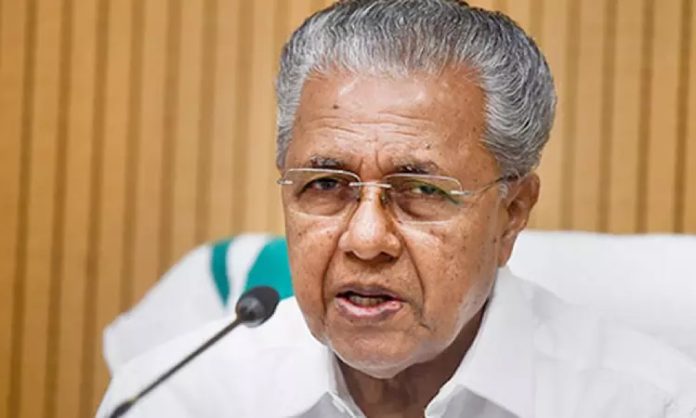By P. Sreekumaran
THIRUVANANTHAPURAM: In a decisive move, a conclave of finance ministers of five states has demanded a fair and equitable division of resources to the States besides a cap on the cesses and surcharges collected by the Union Government.
The conclave, organised by the Left Democratic Front (LDF) Government in Kerala in Thiruvananthapuram on September 12 and attended also by the finance ministers of Tamil Nadu, Telangana, Karnataka and Punjab, expressed grave concern over the rising imbalance in the Centre-State fiscal relations.
The conclave saw the finance ministers of the five non-BJP ruled States demanding a raise in the States’ share in the divisible pool from 41 per cent to 50 per cent and a reduction of the ‘one size fits all’ centrally-sponsored schemes. The FMs made a forceful demand for a cap on the cesses and surcharges so that anything above the limit gets routed to the divisible pool.
Kerala Chief Minister Pinarayi Vijayan, who inaugurated the conclave, drew the attention of the 16th Finance Commission and wanted it to factor in the rising trend in cesses and surcharges while drafting its recommendations. “In the last decade, the surcharges and cesses have shown a rising trend and now comprise one fifth of the gross Tax Revenue of the Union. Its direct consequence is the shrinkage of the divisible pool of taxes,” Pinarayi said. The demand for a higher share for the States in the taxes collected by the Union Government has “continued relevance.”
In the act of balancing, the 16th Finance Commission will have to exercise extreme care in deciding on the tax distribution formula and put to use effectively the constitutional provisions of Article 275 for disbursing grants to states-in-need.
In his address to the conclave, Telangana Deputy Chief Minister and Finance Minister Mallu Bhatti Vikramarka sought recalibration of the Centre-States balance of power to ensure a truly federal system.
Tamil Nadu Finance Minister Thangam Thennarasu stressed the need to raise the share of States in the divisible pool from 41 to 50 per cent. Tamil Nadu, he pointed out, had been repeatedly penalised by successive finance commissions. And its share had dropped from 7.93 under the Ninth Finance Commission to 4.07 per cent under the 15th Finance Commission.
Karnataka Revenue Minister Krishna Byre Gowda asked the 16th Finance Commission to cap the cesses and surcharges levied by the Union Government at five per cent of the gross tax revenue. Anything above it should become part of the divisible pool. That is the demand of Tamil Nadu.
Punjab Finance Minister Harpal Singh Cheema while admitting that the introduction of the Goods and Service Tax (GST) was a landmark reform, however, felt that it had severely curtailed the fiscal autonomy of the States.
Kerala Finance Minister K N Balagopal, who presided over the conclave, felt that cooperative federalism was facing a major crisis. It was increasingly becoming “subordinate federalism” or “coercive federalism,” he opined.
The conclave also voiced the fear that the delimitation of Lok Sabha constituencies would harm the interests of the southern States.
Telangana saw in it a “looming political threat” that would reduce the political representation of the southern States in the Lok Sabha. He also feared that the States which have prioritised population control and social development could be unfairly penalised while the States with higher population growth may gain disproportionate representation in the Lok Sabha.
Karnataka identified itself with the apprehensions expressed by Telangana. The representation of southern States in Parliament would diminish if the exercise is based on the upcoming census. It is a strange paradox, he said, that on the one side, the economic contribution of the southern States is going up, while on the other, there is a distinct possibility that their political representation may go down. This is unacceptable, he said and should be resisted with all the force at the command of the southern States.
The afternoon session saw former Chief Economic Adviser to the Government of India Arvind Subramanian delivering the key note address. (IPA


